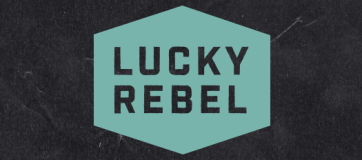- Online Casinos
- Online Betting Sites
- How to Deposit
- Gambling Site Reviews
- Gambling in My Location
 USA
USA- Alabama
- Alaska
- Arkansas
- Arizona
- California
- Colorado
- Connecticut
- Delaware
- Florida
- Georgia
- Hawaii
- Idaho
- Illinois
- Indiana
- Iowa
- Kansas
- Kentucky
- Louisiana
- Maine
- Maryland
- Massachusetts
- Michigan
- Minnesota
- Mississippi
- Missouri
- Montana
- Nebraska
- Nevada
- New Hampshire
- New Mexico
- New York
- North Carolina
- North Dakota
- Ohio
- Oklahoma
- Oregon
- Pennsylvania
- Rhode Island
- South Carolina
- South Dakota
- Tennessee
- Texas
- Utah
- Vermont
- Virginia
- Washington
- Wisconsin
- Wyoming
 Canada
Canada Australia
Australia UK
UK
- Casino of the Month
House Edge in Casino Games: What It Is and Why It Matters
Disclosure: At GamblingSites.com, our mission is to connect you with the best gambling sites and informational resources available. If you click one of the links on our site, we may earn a commission payment at no extra charge to you.
Every year, casinos generate billions of dollars in revenue, largely due to the house edge, the built-in mathematical advantage that ensures casinos profit over time. Understanding the house edge can transform your gaming experience and how you manage your bank roll.
We’ll walk you through the basics, how the house edge varies across games, and practical tips for how you can use this knowledge to your advantage. By the end, you’ll have the tools and knowhow to make smarter gaming choices.
This score goes to the highest rated sites by experts. Only sites that hold an expert rating of above 85% are given this status.
A green Jackpot Certified score is awarded when at least 60% of expert reviews are positive.
A red Bust score is displayed when less than 60% of expert reviews are positive.
A grayed-out gem means there are not enough expert ratings to produce a score. The gambling site could be new.
A green Jackpot Certified score means that at least 60% of player reviews are positive.
A red Bust score means that less that 59% or less of player reviews are positive.
A grayed-out face means there are not enough player reviews to produce a score.
What is House Edge?
The house edge is the average percentage of each bet that the casino expects to keep as profit over the long term. That average percentage will change across each game, with some games that are expected to be more profitable than others.
For example, if a game has a house edge of 5%, the casino expects to retain $5 for every $100 wagered by players. This concept is similar to buying a lottery ticket where the expected payout is less than the ticket price. Over time, the house edge ensures the casino profits, much like how a retailer marks up prices or sets margins to cover costs and earn a profit.
Is House Edge & RTP The Same Thing?
House edge is often expressed as another term: Return to Player (RTP).
- If a slot advertises a 95% RTP, that means the house edge is 5%.
- RTP tells players how much, on average, is returned in winnings over time, while house edge shows how much the casino keeps.
Understanding both terms helps players compare games more effectively and choose options with the lowest house edge or highest RTP.
How House Edge Works in Practice
To see the house edge in action, let’s look at American roulette. The wheel has 38 numbers, yet payouts are structured as if there were only 36. If you place a $1 bet on a single number, you’ll win $35 if it hits, however, the true odds are 1 in 38. This mismatch between payout and probability creates a 5.26% house edge. While one spin might pay out big, over hundreds of spins the math guarantees the casino will profit.
| Concept | Example | What It Means for Players |
|---|---|---|
| Payout Discrepancy | Roulette payouts (35:1) vs. true odds (37:1) | The casino locks in a small but reliable edge. |
| Long-Term Expectation | 5% edge on $100 wagered | Expect to lose about $5 over time. |
| Game Variations | Different blackjack rules (e.g., dealer hits vs. stands on soft 17) | House edge changes depending on conditions. |
House Edge in Different Casino Games
House edge varies across different casino games found on our informative list of online casinos to visit. This section explores the differences in table games, slot machines, and the impact of online versus physical casinos.
Table Games
Table games offer various house edges, often influenced by player strategy and specific game rules. Here are some popular examples:
- Blackjack: With optimal play, the house edge can be as low as 0.5%. Without strategy, it can rise to around 2%. The exact edge depends on the specific rules and number of decks used.
- Roulette: American roulette has a house edge of 5.26%, while European roulette offers a lower edge of 2.7%. The substantial difference is because European roulette has one “0” compared to American roulette’s two “0 & 00”.
- Craps: The house edge varies by bet type. The pass line bet has a house edge of about 1.41%, while some proposition bets can have edges as high as 16.67%.
- Baccarat: Betting on the banker yields a house edge of approximately 1.06%, making it one of the most favorable bets for players.
| Game | Standard House Edge | House Edge with Optimal Play | Key Strategy Tips |
|---|---|---|---|
| Blackjack | ~2% | ~0.5% | Use basic strategy charts |
| Roulette | 5.26% (American) | 2.7% (European) | Choose European wheels |
| Craps | 1.41% (Pass Line) | N/A | Stick to pass and come bets |
| Baccarat | 1.06% (Banker) | N/A | Bet on banker consistently |
Slot Machines
Slot machines usually carry a higher house edge than table games, with percentages ranging from 1% to 15% depending on the specific title and its payout structure. This means that for every $100 wagered, the expected return to the player may be as low as $85–$99 over the long run. By contrast, games like keno can climb to 25%, making them some of the least favorable options in the casino.
Unlike table games where rules are fixed, slot payouts are programmed by the casino (or regulated minimums), so the return to player (RTP) is entirely determined by game design.
Progressive jackpot slots deserve special mention: because part of each bet funds the growing jackpot, the base game’s payouts are reduced, leading to a higher house edge. While the chance at a massive win is appealing, these machines are best approached as entertainment value rather than consistent profit opportunities.
Lowest House Edge Slots
The experts at Gamblingsites.com have identified the lowest house edge slots available at online casinos, here are some examples:
| Slot Title | House Edge % | RTP % | Where to Play |
|---|---|---|---|
| Gold Rush Gus | 1.52% | 98.48% | Play at Bovada |
| Coins of Alkemor | 3.82% | 96.18% | Play at Sportsbetting.ag |
| 777 Deluxe | 3.87% | 96.13% | Play at SlotsandCasino |
Keno (20-35% House Edge)
Keno is one of the least favorable casino games in terms of odds. House edges typically range from 20% to 35%, depending on the paytable and the number of picks. Players choose numbers (often 1–20), and a random draw determines the winners. The appeal comes from the potentially large payouts, but the chances of hitting enough numbers are slim.
Plinko (2-10% House Edge)
Plinko, adapted from the famous TV game, has grown in popularity in online casinos. Players drop a ball or puck down a pegged board, where it bounces randomly before landing in a prize slot at the bottom. The house edge varies widely depending on the layout and payout distribution but often sits between 2% and 10%.
Scratch-Offs (20-30% House Edge)
Scratch-off or “instant win” tickets are the simplest specialty game. You just reveal symbols or numbers to see if you win. The house edge (or payout percentage) depends entirely on the ticket design and can be as high as 20–30%. Since outcomes are predetermined, no strategy can change the odds.
| Game | Typical House Edge | Best Suited For |
|---|---|---|
| Keno | 20% – 35% | Players who enjoy lottery-style play and big jackpots |
| Plinko | 2% – 10% | Casual players looking for fast, fun, visual gameplay |
| Scratch-Offs | 20% – 30% | Players who want instant results and simple mechanics |
How to Use House Edge Knowledge to Your Advantage
Understanding the house edge can help you make smarter gaming choices and extend your play. This section provides strategies for selecting the right games and managing your play effectively.
Choosing the Right Games
Selecting games with a lower house edge can improve your odds. Consider these criteria:
- Game Type: Play games like blackjack or baccarat with lower edges.
- Rules and Variations: Choose games with favorable rules for the player (e.g., European roulette).
- Skill Level:Play games where skill can reduce the house edge like blackjack.
- Payout Rates: Look for games with higher payout percentages.
- Bankroll Management: Set limits to control spending and extend playtime.
Tip: Always manage your bankroll wisely. Set a budget and stick to it to avoid unnecessary losses.
Common Misconceptions About House Edge
Understanding the house edge can dispel common myths and help you make informed decisions.
| Myth | Fact |
|---|---|
| House edge guarantees loss | It affects long-term, not short-term, outcomes |
| All games have the same edge | House edge varies widely between games |
| Skill doesn’t matter | Skill can reduce the edge in certain games |
| Higher bets reduce edge | Bet size doesn’t change the house edge |
Important: Understanding the house edge helps you make informed decisions, but it doesn’t guarantee wins. However, you can potentially win more games by reading our online casino strategy guide.
Casino House Edge FAQ
What casino game has the lowest house edge?
Blackjack has the lowest average house edge, which can range between 0.5% and 1.5% when using basic strategy. However, it depends on the variant and bets placed. Other casino games with low house edges include baccarat, craps, roulette, and certain slots.
Are there any casino games without a house edge?
No, every casino game is designed with a built-in advantage for the house. Some bets in craps, like “odds bets,” technically carry a 0% house edge, but they must be paired with a line bet that does have an edge. This means you can’t play craps (or any other casino game) entirely without the house holding some advantage.
Do online casinos or land-based casinos offer a lower house edge?
Online casinos often offer lower house edges compared to physical casinos, because of the reduced overhead costs. However, the actual house edge depends on the specific game and operator.
Winning in Spite of the House Edge
The house edge ensures that casinos always come out ahead; but that doesn’t mean you can’t win at them. The more you understand about how house edges work, the more realistic your expectations going in will be. And by playing games with a lower house edge you can put yourself in a position to potentially walk away from the casino with more money than you entered it with, especially if you visit some of the luckiest casinos available today.
This score goes to the highest rated sites by experts. Only sites that hold an expert rating of above 85% are given this status.
A green Jackpot Certified score is awarded when at least 60% of expert reviews are positive.
A red Bust score is displayed when less than 60% of expert reviews are positive.
A grayed-out gem means there are not enough expert ratings to produce a score. The gambling site could be new.
A green Jackpot Certified score means that at least 60% of player reviews are positive.
A red Bust score means that less that 59% or less of player reviews are positive.
A grayed-out face means there are not enough player reviews to produce a score.
 80%
80% 75%
75%
